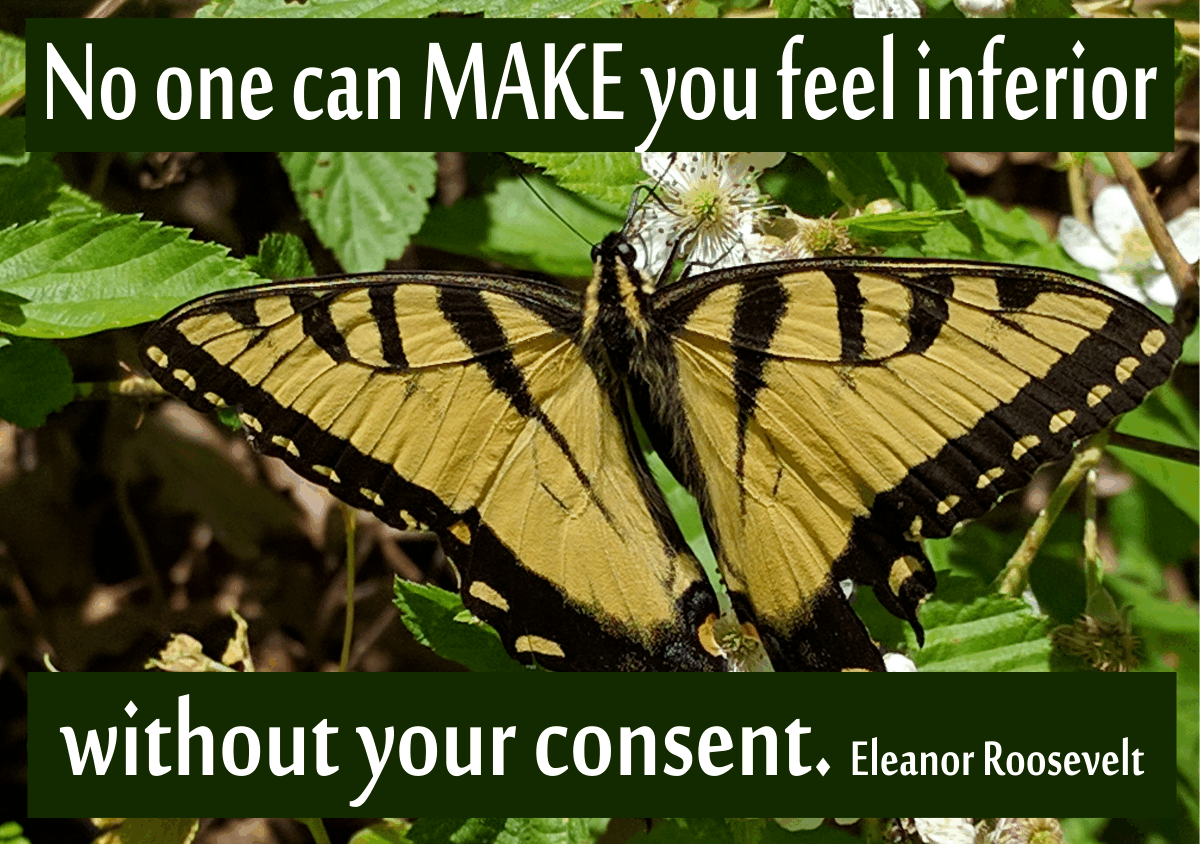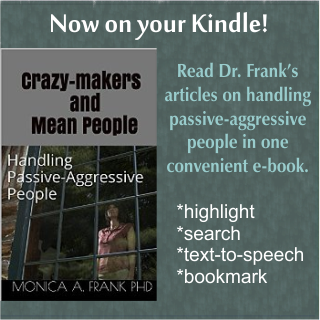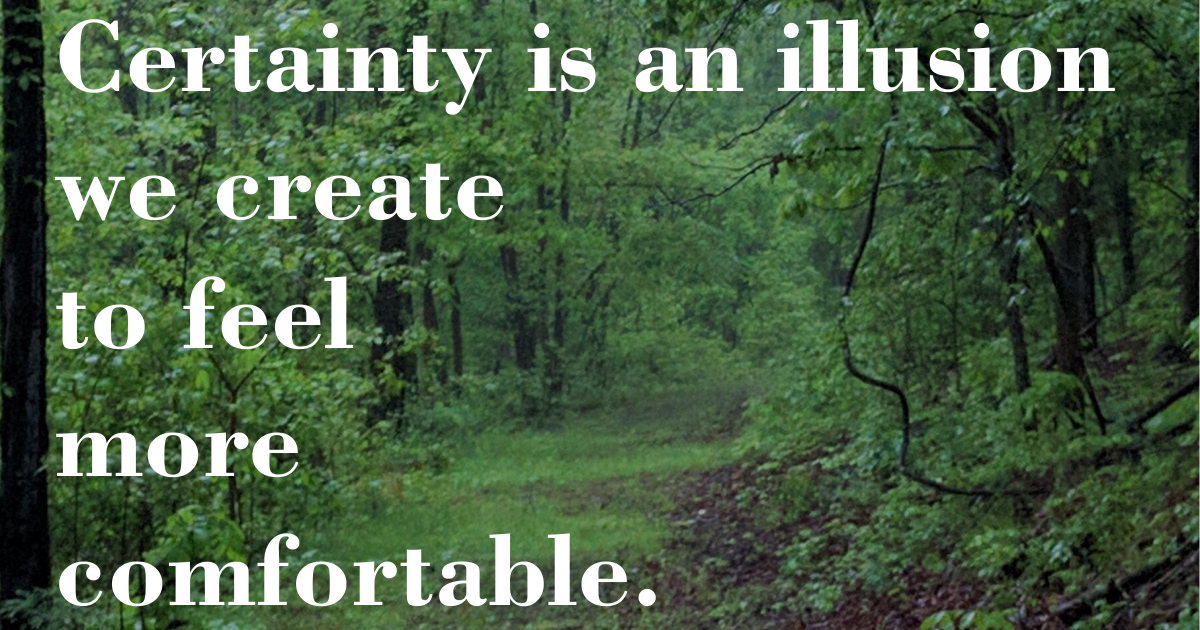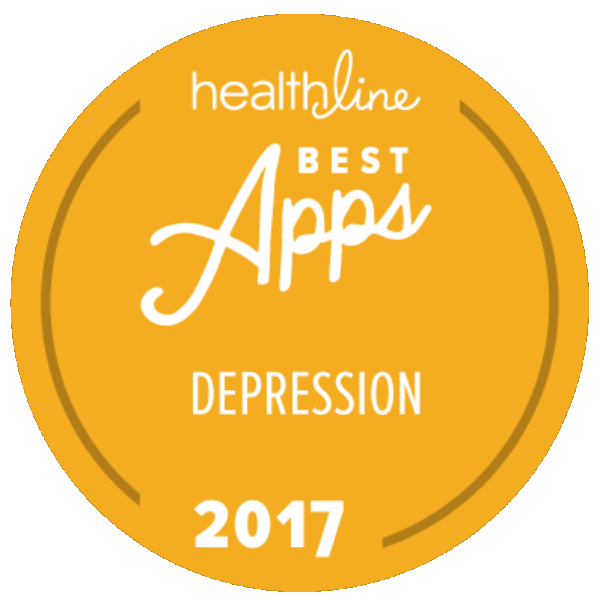










Popular Articles
Crazy-Makers: Dealing with Passive-Aggressive People
Why Are People Mean? Don't Take It Personally!
Struggling to Forgive: An Inability to Grieve
The Secret of Happiness: Let It Find You (But Make the Effort)
20 Steps to Better Self-Esteem
7 Rules and 8 Methods for Responding to Passive-aggressive People
What to Do When Your Jealousy Threatens to Destroy Your Marriage
Guide to How to Set Achieveable Goals
Catastrophe? Or Inconvenience?
Popular Audios
Audio Version of Article: Crazy-Makers: Passive-Aggressive People
Audio Version of Article: Why Are People Mean? Don't Take It Personally!
PsychNotes June 2017
by Monica A. Frank, Ph.D.
Clinical and Sport Psychologist

Index
Previous
Next
June 28, 2017
Five years in a row Stop Panic & Anxiety Self-Help and The Worry Box have been selected by Healthline as one of the Best Apps for Anxiety.
Stop Panic & Anxiety Self-Help was designed by Dr. Monica Frank based upon 30 years of experience as a cognitive-behavioral therapist treating depression and anxiety. The app provides many of the cognitive-behavioral methods that she used with clients -- in an easier to use format than paper-and-pencil! A popular feature of the app which is also available on Excel At Life's website is the Panic Assistance audio which uses the CBT techniques to talk people through a panic attack.
The Worry Box teaches people about use the CBT methods to manage worry. One of the central features of the app is the Worry Box Diary in which a person can record events that caused distress, evaluate their emotions and self-talk, and choose statements to help challenge the self-talk. This is a core feature of CBT and can be most helpful when shared with a therapist. Read more...
Excel At Life's Stop Panic & Anxiety Self-Help and The Worry Box in Healthline's Best Apps for Anxiety
Stop Panic & Anxiety Self-Help was designed by Dr. Monica Frank based upon 30 years of experience as a cognitive-behavioral therapist treating depression and anxiety. The app provides many of the cognitive-behavioral methods that she used with clients -- in an easier to use format than paper-and-pencil! A popular feature of the app which is also available on Excel At Life's website is the Panic Assistance audio which uses the CBT techniques to talk people through a panic attack.
The Worry Box teaches people about use the CBT methods to manage worry. One of the central features of the app is the Worry Box Diary in which a person can record events that caused distress, evaluate their emotions and self-talk, and choose statements to help challenge the self-talk. This is a core feature of CBT and can be most helpful when shared with a therapist. Read more...

June 27, 2017
Have you ever avoided someone because “he's creepy”? People believe they are protecting themselves when they avoid those they judge as “creepy” but such quick assessments of others may cause you to be more vulnerable to those who are more likely to hurt you.
Snap Judgments of People as “Creepy” May Harm You
How can snap judgments cause you harm?
More than 70% of people make judgments about “creepiness” in less than a minute and most believe their assessment is accurate. Those who quickly judge others as “creepy” are also more likely to make snap judgments about other characteristics such as trustworthiness based on superficial physical features. Read more...
June 23, 2017
Even simple decisions like “What do you want for dinner?” are difficult for me when I'm under stress: “I don't know! I don't want to make a decision!” “All I asked is what you want for dinner.” So I have to make sure I use stress management skills so I don't get irritable over ridiculously silly things.
Why would such a simple decision cause irritability? Because a decision means a potential mistake is nearby. When stressed, the brain doesn't evaluate the risk-level of the mistake, it just recognizes that a mistake could occur. When not stressed, the brain can assess the situation and say “This decision doesn't matter that much—the consequences are not significant.” Even simple decisions require the effort of evaluating the reward/risk ratio and when we are under stress we often don't want to make the effort.
Uncertainty, Decision-making, and Stress
Why would such a simple decision cause irritability? Because a decision means a potential mistake is nearby. When stressed, the brain doesn't evaluate the risk-level of the mistake, it just recognizes that a mistake could occur. When not stressed, the brain can assess the situation and say “This decision doesn't matter that much—the consequences are not significant.” Even simple decisions require the effort of evaluating the reward/risk ratio and when we are under stress we often don't want to make the effort.
How does stress affect decision-making?
A review of over 30 studies on decision-making (Starcke and Brand, 2016) shows that as uncertainty about the outcome increases stress negatively affects decision-making in several ways: Read more...
June 15, 2017
 Bullying at work can often be so subtle that it is difficult to report without appearing to be overly sensitive or petty. Most people are not overtly bullied with physical attacks or threats of violence because these behaviors can be easily identified and reported. Instead, most bullying at work is a passive-aggressive type that is usually a combination of subtle behaviors that the perpetrator can easily deny as being misunderstood.
Bullying at work can often be so subtle that it is difficult to report without appearing to be overly sensitive or petty. Most people are not overtly bullied with physical attacks or threats of violence because these behaviors can be easily identified and reported. Instead, most bullying at work is a passive-aggressive type that is usually a combination of subtle behaviors that the perpetrator can easily deny as being misunderstood.
2) Excessive oversight. Your boss monitors your work constantly, questioning everything that you do. Your boss can claim that is his/her management style or that s/he was concerned about the project and your performance. Read more...
New Article: How You Can Be More Resistant to Workplace Bullying
 Bullying at work can often be so subtle that it is difficult to report without appearing to be overly sensitive or petty. Most people are not overtly bullied with physical attacks or threats of violence because these behaviors can be easily identified and reported. Instead, most bullying at work is a passive-aggressive type that is usually a combination of subtle behaviors that the perpetrator can easily deny as being misunderstood.
Bullying at work can often be so subtle that it is difficult to report without appearing to be overly sensitive or petty. Most people are not overtly bullied with physical attacks or threats of violence because these behaviors can be easily identified and reported. Instead, most bullying at work is a passive-aggressive type that is usually a combination of subtle behaviors that the perpetrator can easily deny as being misunderstood.
Some examples:
1) Withholding. A co-worker doesn't provide you with necessary information for a task and your performance is affected. The co-worker can claim they didn't realize you didn't have the information.2) Excessive oversight. Your boss monitors your work constantly, questioning everything that you do. Your boss can claim that is his/her management style or that s/he was concerned about the project and your performance. Read more...

June 13, 2017
Although most people know what is healthy behavior and what is not, one of the enigmas of health psychology is how to motivate people to engage in more healthy behavior. Unfortunately, unhealthy behaviors are too attractive: overeating, drinking, smoking, avoiding routine health care, speeding while driving, or sitting around the pool rather than exercising, to name a few.
A recent examination of the research shows that having people imagine how much regret they might feel can help motivate them to engage in more healthy behaviors (Brewer, 2016). Unfortunately, this method has a limit in that it is more likely to help with increasing protective behaviors than with decreasing unhealthy behaviors. For example, it may be easier for a person to use the anticipation of regret to increase physical activity than to decrease alcohol consumption.
One reason for this difference may be that most unhealthy behaviors are known to go against medical advice so a person is more likely to engage in self-blame. You would think that when a person feels bad about something it is likely to decrease the behavior, but frequently the opposite is true. Feeling self-blame triggers defense mechanisms such as minimizing or denial to protect the self-concept. In such circumstances, imagining regret for a behavior is less powerful. Read more...
Motivating Health Behaviors by Anticipating Regret
A recent examination of the research shows that having people imagine how much regret they might feel can help motivate them to engage in more healthy behaviors (Brewer, 2016). Unfortunately, this method has a limit in that it is more likely to help with increasing protective behaviors than with decreasing unhealthy behaviors. For example, it may be easier for a person to use the anticipation of regret to increase physical activity than to decrease alcohol consumption.
One reason for this difference may be that most unhealthy behaviors are known to go against medical advice so a person is more likely to engage in self-blame. You would think that when a person feels bad about something it is likely to decrease the behavior, but frequently the opposite is true. Feeling self-blame triggers defense mechanisms such as minimizing or denial to protect the self-concept. In such circumstances, imagining regret for a behavior is less powerful. Read more...

June 5, 2017
Many people are surprised that positive events can be stressful. Or, they don't understand why they are reacting even though they have successfully reappraised the event in the past. For instance, a man trying to control anger when his spouse points out a mistake has been able to tell himself (and believe) “She's not trying to criticize me but is trying to help me” still reacts with a flush of anger when the event occurs.
Research shows that as people age they are able to reduce the effects of stress more quickly most likely due to experience and the use of strategies. However, their initial reaction to a stressful event is not different from someone who is younger (Scott et al., 2017). This supports the idea that the body has a mind of its own even when the brain believes everything is okay.
Your Body Reacts Even When You Don't Think It Should
Research shows that as people age they are able to reduce the effects of stress more quickly most likely due to experience and the use of strategies. However, their initial reaction to a stressful event is not different from someone who is younger (Scott et al., 2017). This supports the idea that the body has a mind of its own even when the brain believes everything is okay.
Why does this occur?
1) Change. The body is programmed to respond to change. The brain is able to assess change and determine whether it is a threat or not. But before that occurs, the body has already responded by kicking in the autonomic nervous system and releasing adrenalin and cortisol to help cope with the change. This is an automatic response and is not based upon whether the person considers the change bad or good. Read more...
June 2, 2017
Five years in a row Depression CBT Self-Help Guide has been selected by Healthline as one of the Best Apps for Depression.
Depression CBT Self-Help Guide was designed by Dr. Monica Frank based upon 30 years of experience as a cognitive-behavioral therapist treating depression and anxiety. The app provides many of the cognitive-behavioral methods that she used with clients -- in an easier to use format than paper-and-pencil!
One of the central features of the app is the Cognitive Diary in which a person can record events that caused distress, evaluate their emotions and self-talk, and choose statements to help challenge the self-talk. This is a core feature of CBT and can be most helpful when shared with a therapist. Read more...
Excel At Life's Depression CBT Self-Help Guide in Healthline's Best Apps for Depression
Depression CBT Self-Help Guide was designed by Dr. Monica Frank based upon 30 years of experience as a cognitive-behavioral therapist treating depression and anxiety. The app provides many of the cognitive-behavioral methods that she used with clients -- in an easier to use format than paper-and-pencil!
One of the central features of the app is the Cognitive Diary in which a person can record events that caused distress, evaluate their emotions and self-talk, and choose statements to help challenge the self-talk. This is a core feature of CBT and can be most helpful when shared with a therapist. Read more...

June 1, 2017
 Question:
Sister-in-law makes comment to brother's wife that she should be more receptive to his dreams after working hard all his life and as money is not a problem.
Wife responds by telling husband that his sister is telling everyone she is controlling and "your sister hates me." She also tells him that his sister makes sure he's not around when
she goes off on her with hurtful non-specific insults. The brother believes all the lies told to him and blocks his sister from his life.
The sister truly loves her brother and was trying to help with his dreams.
She wishes to resolve the matter with her brother and his wife together but doesn't know how to do that with the PA wife without calling her a liar.
This occurred during a period when the sister had lost a child and the brother continued to call her a liar during her depression and block her from contact.
The sister is worried to call the PA wife out because it may end the relationship forever.
She is hurting and needs help to expose the PA lies without totally ruining the relationship or even knowing if it's worth saving<.
Question:
Sister-in-law makes comment to brother's wife that she should be more receptive to his dreams after working hard all his life and as money is not a problem.
Wife responds by telling husband that his sister is telling everyone she is controlling and "your sister hates me." She also tells him that his sister makes sure he's not around when
she goes off on her with hurtful non-specific insults. The brother believes all the lies told to him and blocks his sister from his life.
The sister truly loves her brother and was trying to help with his dreams.
She wishes to resolve the matter with her brother and his wife together but doesn't know how to do that with the PA wife without calling her a liar.
This occurred during a period when the sister had lost a child and the brother continued to call her a liar during her depression and block her from contact.
The sister is worried to call the PA wife out because it may end the relationship forever.
She is hurting and needs help to expose the PA lies without totally ruining the relationship or even knowing if it's worth saving<.
Passive-Aggressive Example: Getting in the Middle of Passive-Aggression
 Question:
Sister-in-law makes comment to brother's wife that she should be more receptive to his dreams after working hard all his life and as money is not a problem.
Wife responds by telling husband that his sister is telling everyone she is controlling and "your sister hates me." She also tells him that his sister makes sure he's not around when
she goes off on her with hurtful non-specific insults. The brother believes all the lies told to him and blocks his sister from his life.
The sister truly loves her brother and was trying to help with his dreams.
She wishes to resolve the matter with her brother and his wife together but doesn't know how to do that with the PA wife without calling her a liar.
This occurred during a period when the sister had lost a child and the brother continued to call her a liar during her depression and block her from contact.
The sister is worried to call the PA wife out because it may end the relationship forever.
She is hurting and needs help to expose the PA lies without totally ruining the relationship or even knowing if it's worth saving<.
Question:
Sister-in-law makes comment to brother's wife that she should be more receptive to his dreams after working hard all his life and as money is not a problem.
Wife responds by telling husband that his sister is telling everyone she is controlling and "your sister hates me." She also tells him that his sister makes sure he's not around when
she goes off on her with hurtful non-specific insults. The brother believes all the lies told to him and blocks his sister from his life.
The sister truly loves her brother and was trying to help with his dreams.
She wishes to resolve the matter with her brother and his wife together but doesn't know how to do that with the PA wife without calling her a liar.
This occurred during a period when the sister had lost a child and the brother continued to call her a liar during her depression and block her from contact.
The sister is worried to call the PA wife out because it may end the relationship forever.
She is hurting and needs help to expose the PA lies without totally ruining the relationship or even knowing if it's worth saving<.


















